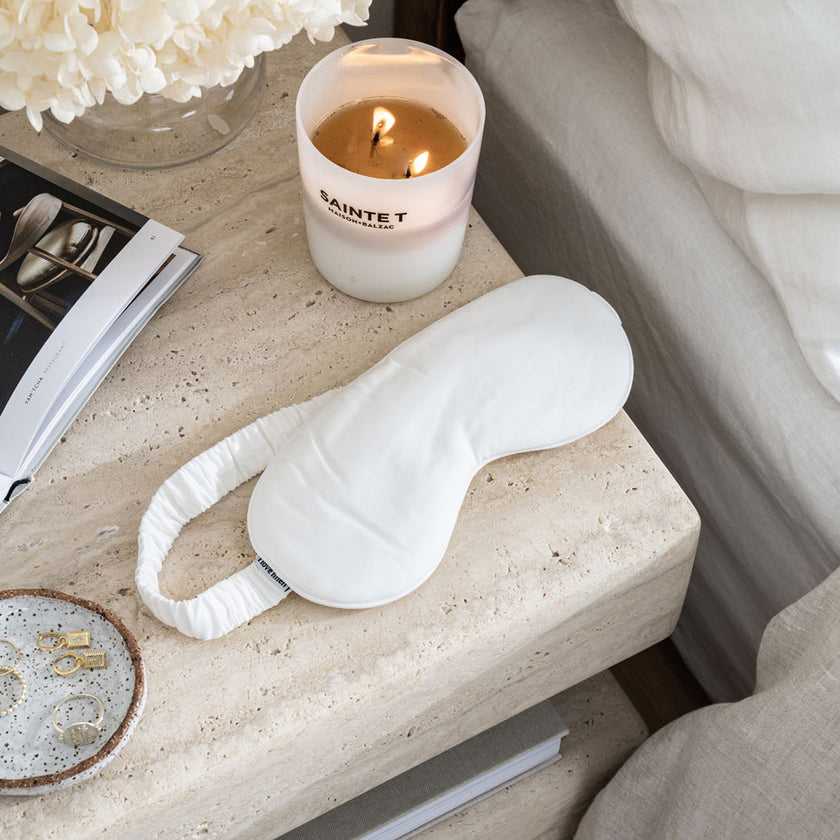
How Magnesium can help you sleep well (and live well)
Posted: 01 June 2023
If you’re struggling to get enough Zs, wake up feeling tired, or are looking to improve on an already satisfactory night’s sleep, there’s a natural remedy you might have overlooked: Magnesium.
Poor sleep is enough to leave us tired, sluggish, and, honestly, downright moody. There are the lucky few of us who can function on minimal sleep, but for most people, getting enough sleep is essential to leading a healthy lifestyle, both physically and mentally. This common mineral is increasingly popular as a supplement designed to help reduce anxiety, relax your muscles and nervous system, and, most importantly, improve your sleep quality. The problem is many of us simply don’t get enough magnesium in our diets, with up to 20% of people having measurably low levels of magnesium deficiency. Despite not having magnesium deficiency, the rest of us would do well to improve our magnesium intake when we can.

What is Magnesium?
Magnesium is a chemical element found in abundance on earth. This grey dull metal is also essential for our bodies to function optimally. Without it, we can struggle with muscle soreness, aches and pains, and, most importantly, poor sleep. In fact, magnesium is so fundamental to our bodies that it takes part in over 300 biochemical reactions and pathways. Specifically, magnesium does a great job of helping important chemicals pass in and out of our cells. If we have low magnesium levels or experience magnesium deficiency, our entire system can ‘slow down’ as we can get the necessary minerals, like potassium and calcium ions, in and out of our cells diminishes.
Almost every part of your body benefits from magnesium, including assisting in muscle and nerve function, supporting your immune system and maintaining strong bones. Most famously, however, it greatly impacts the quality of sleep.


Magnesium packs a punch when it comes to improving your sleep. Over 50% of older adults suffer from insomnia, poor sleep, and other sleep disorders, and studies have shown that taking magnesium can significantly improve sleep quality and sleep duration while reducing nighttime awakenings. This is because magnesium plays a crucial role in maintaining a good circadian rhythm. Your body can better induce sleep and relaxation by regulating melatonin and other neurotransmitters like GABA. It can also help reduce inflammation and stress, which is a common cause of nighttime awakenings.

This wonder mineral plays a larger role than just improving sleep; in fact, there are many other benefits to increasing your magnesium levels, including:
- Supports healthy bone development and strength
- Helps regulate blood pressure and prevent hypertension
- Aids in the production of DNA and RNA
- Essential for the proper nervous system and muscle function
- Supports healthy immune system function
- Helps maintain a healthy heart rhythm
- It can improve insulin sensitivity and help manage diabetes

How to Take Magnesium
Magnesium is a versatile mineral and can be absorbed through digestion or directly through the skin. Firstly, if you want to take a magnesium supplement, use magnesium-rich skin care, or bathe in a luxurious magnesium salt bath, you must understand which type of magnesium is best for improving your sleep quality and for your unique body.
The types of magnesium you commonly find at a chemist include:
Magnesium Oxide:
This is the most common form of magnesium. It has a high concentration of magnesium but is not very bioavailable. It is, therefore, a budget-friendly choice, but beware, it can cause a sore stomach.
Magnesium Citrate:
Magnesium Citrate is one of the most commonly found types of magnesium in quality supplements. It is bioavailable and helps to improve sleep.
Magnesium Glycinate:
Magnesium Glycinate, as a supplement, is the most effective form of magnesium for improving sleep because it can cross the blood-brain barrier.

What is the best type of magnesium for a bath?
While magnesium supplementation is effective, nothing beats stepping into a warm magnesium bath. As you lie back and let the day’s stresses melt away, the Epsom salts help to deeply relax your mind and body as the magnesium is absorbed directly through your skin. Epsom salts or Magnesium sulfate is the best option for those who like to get their daily intake of magnesium in style, that is - through a warm and well-deserved bath at the end of a long day.













